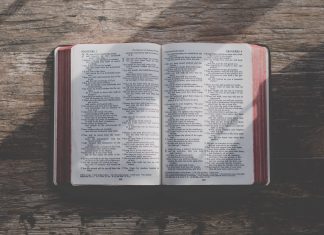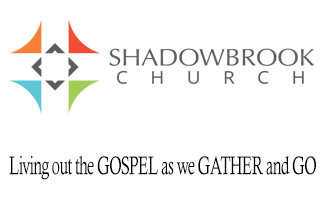Serious Sins
Every sin is serious, even the ones that look respectable.
But that doesn’t mean some sins don’t deserve more attention than others.
In fact, when the Bible rattles off a series of sins, it tends to mention many of the same ones. And while we don’t want to do ethics by list making, it is instructive to note what sins are mentioned, how often, and in what place.
Here are the eight vice lists in the New Testament...
God’s Not Really That Holy, I’m Not Really That Bad
How do you know that you really get the gospel, that you really understand and believe it? Or perhaps better said, how do you know that the gospel has...
Five Ways to Fight Sin
Trying to tame sin rather than killing it is as silly as people making pets out of predatory animals.
I once read an article with the headline, “Pennsylvania Woman Killed by Pet Bear.” This woman had raised a black bear named Teddy from cubhood, and for nine years, there were no incidents. But then, one day, as she was cleaning his cage, the bear mauled her.
The Local Church Was Made To Serve The Christian, Not The Christian The Local...
The sabbath was made for man, not man for the sabbath. Sabbath is a gift God has given us for our good. We are feeble creatures who need rest, yet foolish creatures who would otherwise work ourselves to the bone. The sabbath is a reminder of our weakness, of our finiteness, of our inability. It is a reminder of all of these in a physical sense and, more ultimately, in a spiritual sense, for so much of what is true of our bodies is true of our souls. We accept sabbath as a blessing from God and ignore or reject it to our own peril.
Think You Don’t Need a Church to Know Jesus? Think Again.
During the summer at one of our Summit campuses, an Afghan woman—I’ll call her Hadiya—showed up to VBS and, with a very limited vocabulary, let the staff know she was there for her 5-year-old to attend the event. She opened up her phone and showed them a picture of a lady who she called Amanda and said that this lady invited her while she was at the park. Hadiya had wanted to come because she’d heard of the church before.
On Following Mediocre Leaders
We human beings have a strange relationship with leadership. We love it, but hate it. We crave it, but resent it. We long to be led, but contend with those who lead us. We witness this phenomenon in toddlers, in seniors, and in everyone between. As soon as we have the ability to shake our fists, and for as long as we have the ability to shake our fists, we shake them at those who lead us.
What Newborns, the Bible, and Your Health Have in Common
Babies grow by drinking milk—lots of it. They don’t take in one glass on Sunday and another the next Sunday. They drink all day, every day, several times a day.
(And night.)
But imagine if a mother only fed her baby one day a week. What would happen to that baby? Even if it survived, it would grow up malnourished, with serious growth defects.
Why Is There Only One Way To Heaven?
It is an audacious claim of the Christian faith that there is only one way to heaven. “All have sinned and fall short of the glory of God,” we believe. Not most, not some, but all. Since all of us have sinned, all of us are lost and in need of saving. And this saving we so badly need can come from only one Savior since “there is salvation in no one else, for there is no other name under heaven given among men by which we must be saved.” Thus, we believe, there is only one way to be saved, only one way to heaven—Jesus Christ who is “the way, the truth, and the life.” No one comes to relationship with God, no one comes into the presence of God, no one gets to heaven, except through faith in Jesus Christ.
Beware the Complacency of “Once Saved, Always Saved”
Many cultural Christians think church is a good thing, but they are not committed.
They are not involved in any ministry.
They don’t sacrificially give.
They couldn’t tell you the last time they told someone about Jesus.
They come to church about once every couple months, because they are “just so busy.”
(Plus, their extended family has a beach house and so they try and get down to it for the weekend whenever the weather is nice.)
For these people, church is a good thing, but they’re just not interested in making it a priority.
What Makes a Really Good Study Bible?
Many Christians can attest that of all the resources that have deepened their understanding of God’s Word, few have proven more important than a really good study Bible. A study Bible combines the text of Scripture with notes that help with both interpretation and application.




























